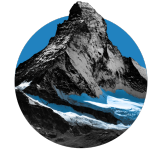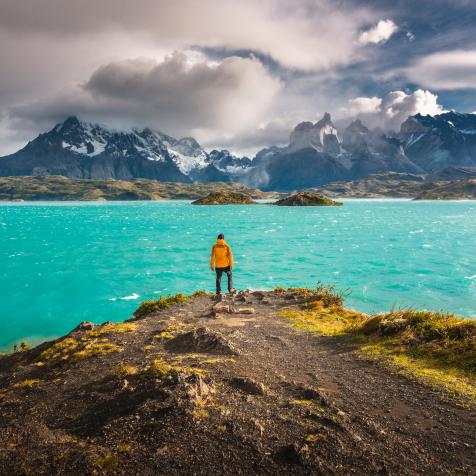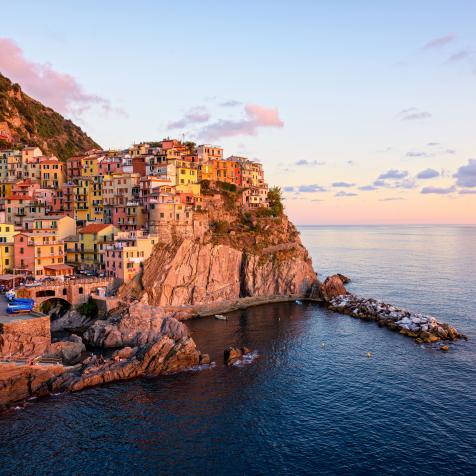
JR standing on the Arctic Circle - Baffin Island.
Celebrating Black Explorers with J.R. Harris

Meet J. Robert Harris, a marketing consultant and social scientist by profession and a true explorer by heart. He's been exploring remote parts of the world for 50 years. Using personal anecdotes and archival images, J.R. draws from his own expedition experience and spotlights the struggles and triumphs of Black explorers throughout history and those who forge ahead today.
Serving as chair of the Diveristy, Equity & Inclusion Committee at The Explorers Club, J.R. is also founder and president of JRH Marketing Services, the oldest African American-owned research and consulting firm in the United States. J.R. is committed to encouraging everyone, regardless of age, ethnicity, or physical fitness, to experience all the benefits that come from spending time in the great outdoors. He has written a book about his exploits entitled, Way Out There: Adventures of a Wilderness Trekker. J.R. firmly believes that through our own unique experiences, we can unite to support, maintain, and protect our natural environments.

J.R. at Nelson Lakes National Park, New Zealand.
Tell us about yourself and your own history in exploration. What does it means to you to be an explorer?
J.R.: I was born curious, so my interest in exploration began at an early age. I was raised in public housing and on the streets of New York City, but I always had the urge to travel and see what our planet had to offer. By profession, I am a marketing consultant and social scientist, but I always look forward to leaving my desk to go out into the wilderness to satisfy my curiosity and expand my comfort zone. I’ve now been exploring in remote parts of the world for more than 50 years. Being an explorer has not only added to my knowledge and insight about the world and its inhabitants, but has also satisfied my love of adventure and my desire to live an exciting and fulfilling life.
Exploring the World with J.R. Harris 12 Photos
To some of the far reaches of our Earth, check out breathtaking sites with explorer J.R. Harris. J.R. is a resident of New York City and has been exploring, unsupported and mostly alone, in remote areas around the world for more than 50 years. He is on The Explorers Club’s Board of Directors and is Chair of the Diversity, Equity & Inclusion (DEI) Committee. When not in the wilderness, J.R. is founder and president of JRH Marketing Services. Established in 1975, it is the oldest and most experienced African American-owned consulting and research firm in the United States.
Could you give us a sense of historical difficulties faced by Black explorers and some examples of pioneers who succeeded despite the hurdles?
J.R.: In the past, social and cultural mores severely limited the opportunities for people of color to become explorers, and it marginalized the efforts of those few who tried. In spite of this, we can look back with pride at trailblazers such as Matthew Henson, Jim Beckwourth, Col. Charles Young, and York, the slave member of the Lewis and Clark Expedition. There are others who have not been recognized and whose stories have gone untold. Hopefully, they will emerge from obscurity and be given the credit they deserve.
How do things look today, and could you give some examples of prominent Black explorers working now?
J.R.: Things have certainly changed for the better. Today we can point to contemporary explorers such as Mario Rigby, Ayana Flewellen, Shelton Johnson, as well as others profiled among The Explorers Club’s 50 featured explorers whose efforts are contributing significantly to our collective knowledge. The next generation of African American explorers will stand on the shoulders of these men and women. They will bring a different perspective and a unique perception of our environment and the forces acting upon it, thereby raising the bar of scientific inquiry and field exploration well into the 21st century.
As a Director at The Explorers Club, we understand you are chairing a Diversity, Equity, and Inclusion (DEI) Initiative to help broaden representation in exploration and the field sciences. Could you tell us a bit more about your work?
J.R.: The DEI Committee’s mission is to expand The Explorers Club’s membership by soliciting and recruiting qualified men and women from across a range of diversities, including race, culture, gender, age, sexual orientation, geography, and socio-economic level, as well as explorers with disabilities. Our primary objective is to utilize the proven benefits of diversity, equity, and inclusion to make the Explorers Club more relevant and effective in achieving its mission of scientific research and exploration. In doing this, we will provide our diverse new members with exceptional opportunities for networking, mentoring, expedition funding, support, and fellowship with current members.

At Egypt Lake in Banff National Park, Alberta, Canada.
This article was written in partnership with The Explorers Club. You can find out more about these incredible leaders at explorers.org. Plus, catch the Black History Month presentation by J. R. Harris, "Sambo or Superman: The Rocky Road to Recognition for the African American Explorer."




















